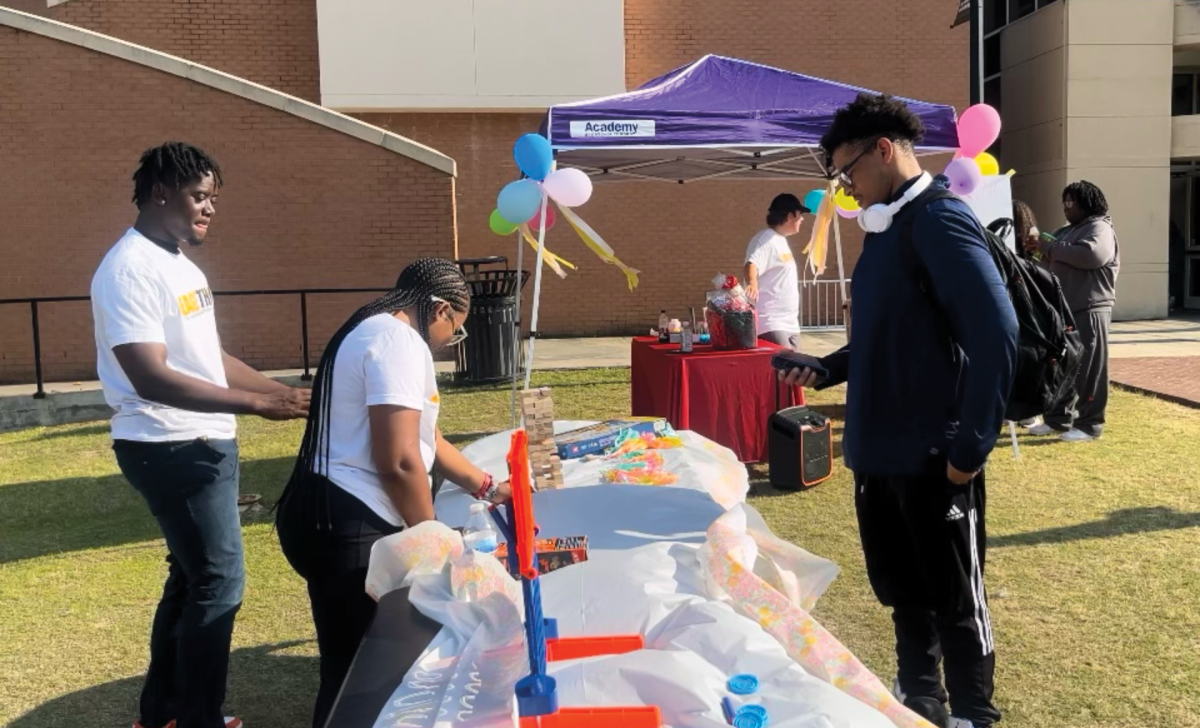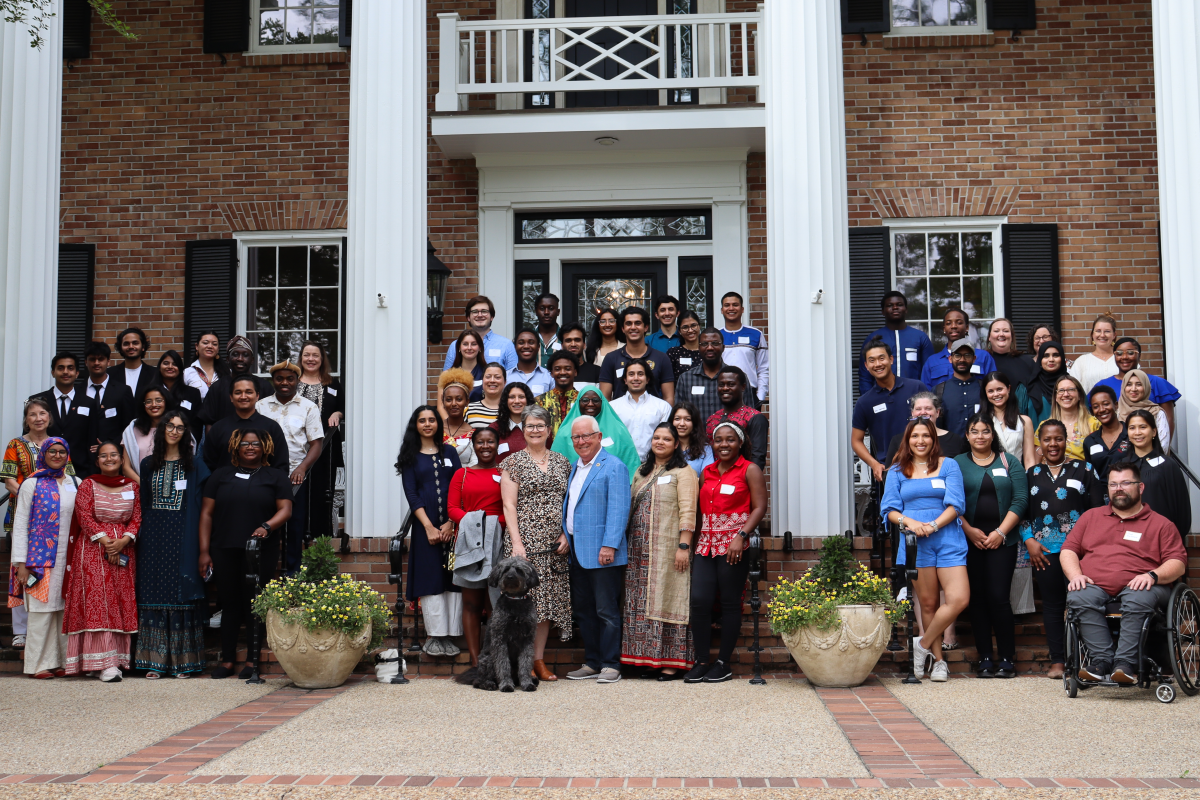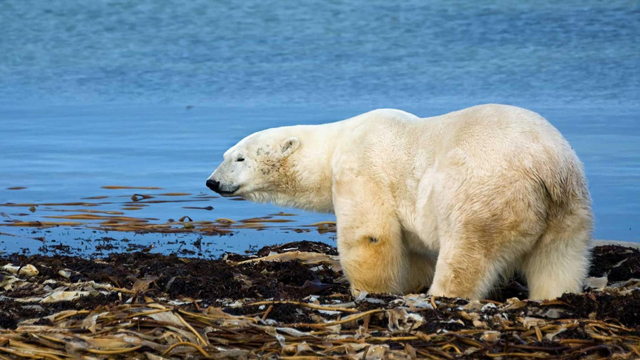When paleontologist Neil Shubin and his team discussed the possibility of an expedition to the Canadian Arctic Islands in search of “the missing link” between fish species, they went to eat at a nearby Chinese restaurant. After his meal when Shubin opened his fortune cookie, it read, “Soon you’ll be on the top of the world.”
“When the universe is speaking to you, you gotta listen,” Shubin said
As part of The University of Southern Mississippi’s Darwin Week celebrations, Neil Shubin delivered the keynote address entitled “Your Inner Fish” on Tuesday evening, beginning the weeklong series educational events.
The University Forum series presents discussions given by nationally recognized policy makers, scientists and scholars monthly on the Southern Miss Hattiesburg campus. “Your Inner Fish” focused on the discovery of Tiktaalik, a fossilized fish also known as fishapod, and the importance of the relationship between the genes of human embryos and other species.
Shubin, a celebrated paleontologist and professor at the University of Chicago, led his research team to Ellsemere Island in Canada near the Arctic where they discovered Tiktaalik, the 375-million-year-old fossil of a flat-headed freshwater fish with limbs.
On the island, the team of nine endured 24-hour daylight, extreme wind and bitter cold. Their only supplies were carried to them by helicopter.
On their first expedition to Ellsemere Island, Jason Downs, an undergraduate student, disappeared one day. In such a dangerous region populated by polar bears and environmental hazards, Shubin and his team were concerned as to where he had gone.
“If you lose an undergraduate in the field, it’s a lot of paperwork,” Shubin said during his lecture.
Downs finally appeared late in the night with handfuls of fossils that he had discovered only a mile from the camp. The whole team began to excavate the site at midnight in broad daylight. The remains they had discovered were all from previously known species, but nevertheless, they were encouraged by what they had found, according to Shubin.
The most significant discovery was not unearthed until the fourth expedition to the Arctic. Over a two-month period, the scientists assembled fragments of a flat-headed creature that was both fish and tetrapod. As an acknowledgment to the Inuit people who had let them excavate on their land, they decided to name the discovery in the native language. After consulting with the Council of Elders, the team decided on Tiktaalik, which means simply “large freshwater fish.”
When Shubin discussed his discovery to the Council of Elders, he told the story of how he had to describe the fossil to them in order to come up with a name. Both had become frustrated because the Elder at first believed that they were miners looking to make money. “I said, ‘It’s about science, it’s not about the money,’’ Shubin recalled. “Then he thought I was crazy.”
The remains of Tiktaalik that Shubin and his team found is actually the first evidence that can be used to support the claim of biological evolution. According to Shubin, it represents the possibility of being a transitory species between a fish and amphibian which is what most of Shubin’s research was focused on.
Shubin said that he is not done with his research. “When people call Tiktaalik ‘the missing link,’ it implies there is a single fossil that tells us about the transition from water to land. Tiktaalik gains meaning when it’s compared with other fossils in the series. So it’s not ‘the’ missing link. I would probably call it ‘a’ missing link. It’s also no longer missing – it’s a found link. The missing links are the ones I want to find this summer.”
He also has a new book in progress that he mentioned is due to the publisher in September.
Shubin said the fortune is still hanging in his office, as a poignant reminder.








































